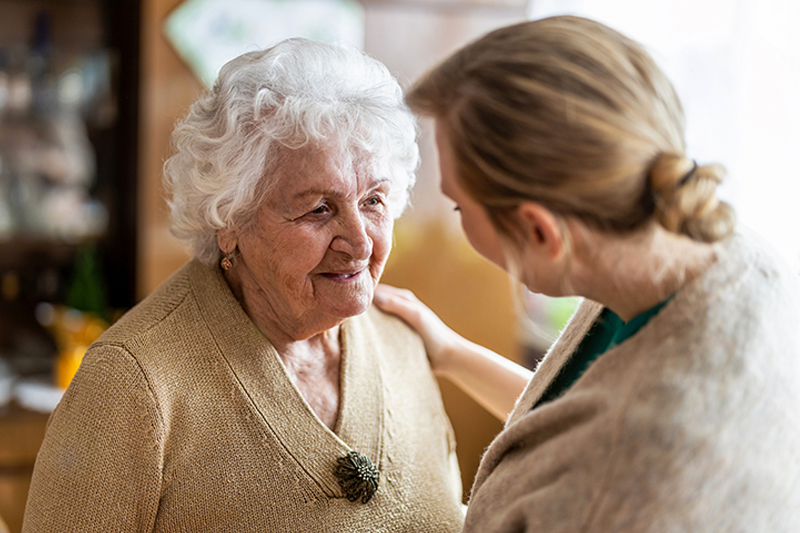
For older adults living with chronic pain, pain management is key, and in-home care services can help.
Aching. Burning. Stinging. That is the way many older adults with chronic pain express what they live with on a daily basis. Chronic pain may occur anywhere in the body, in some cases for no apparent reason at all. It is defined by pain that continues for more than three months, either nonstop or off and on. And it’s more prevalent than you might think, affecting a quarter of us in the US, which makes finding pain management solutions essential for millions of Americans.
Needless to say, such continuous pain can have a dramatic impact on an older adult’s total wellbeing. Not only does it affect the ability to perform everyday physical duties and activities, it also causes psychological pressure too, often resulting in anxiety, tiredness, moodiness, depression, insomnia, and more.
Medical Treatments for Chronic Pain Management
Quite a few factors go into the decision of how to best assist an older adult with chronic pain, including the suspected or established root cause of the pain, how serious the pain is, where in the body it occurs, and age/overall health. There are a number of medication-based treatments to ease pain, including treatment for any emotional effects being experienced.
Also, the physician might want to try a nerve block, epidural steroid injection, or transcutaneous electrical nerve stimulation, which involves small electrical impulses delivered through skin patches.
There can be unpleasant side effects from these types of treatments, and some are quite serious, so the doctor will need to carefully assess what works best for the patient.
Lifestyle Changes for Chronic Pain Management
Encouraging changes in lifestyle for older adults is an effective starting place, because they can be implemented right away without any negative effects. Several recommendations from our experts in home care in Creve Coeur and the surrounding areas include:
- A change in diet. Certain foods can cause inflammation, which can worsen pain. An anti-inflammatory diet that cuts out refined carbs and red meat might be recommended by the doctor or a nutritionist.
- Stress reduction. Heightened stress levels can have a substantial effect on chronic pain. There are strategies to reduce stress that can help, like deep breathing, meditation or prayer, taking a warm, relaxing bath, reading, or listening to calming music.
- Exercise. Though it may seem difficult to think about exercising while in pain, low-intensity workouts are actually worthwhile, and can also help with alleviating stress. Ask the doctor for specific tips.
- Sleep. Adequate sleep is key to overall health and wellness. Additionally, there is a link between sleep deficiency and weight gain, an element that can further aggravate chronic pain. Let the physician know if insomnia is an issue so they can provide assistance with safe ways to improve sleep habits.
Home Care Helps Chronic Pain Management
Allow the aging care team at Compassionate Nursing Services, a trusted provider of in-home care in Creve Coeur, MO and nearby areas, help an older adult you know find the pain management solutions they need. There are a variety of ways our care providers can help, including:
- Companionship – having someone to talk to and take part in enjoyable activities with is a fantastic mood-booster
- Motivation to take part in recommended exercise programs
- Healthy meals
- Help with housework and laundry
- Medication reminders
- Transportation to medical appointments and anywhere else a senior would like to go
- And much more
Contact us any time at 314-432-4312 and let us know about the challenges you are experiencing so that we can offer a solution to overcome them.
